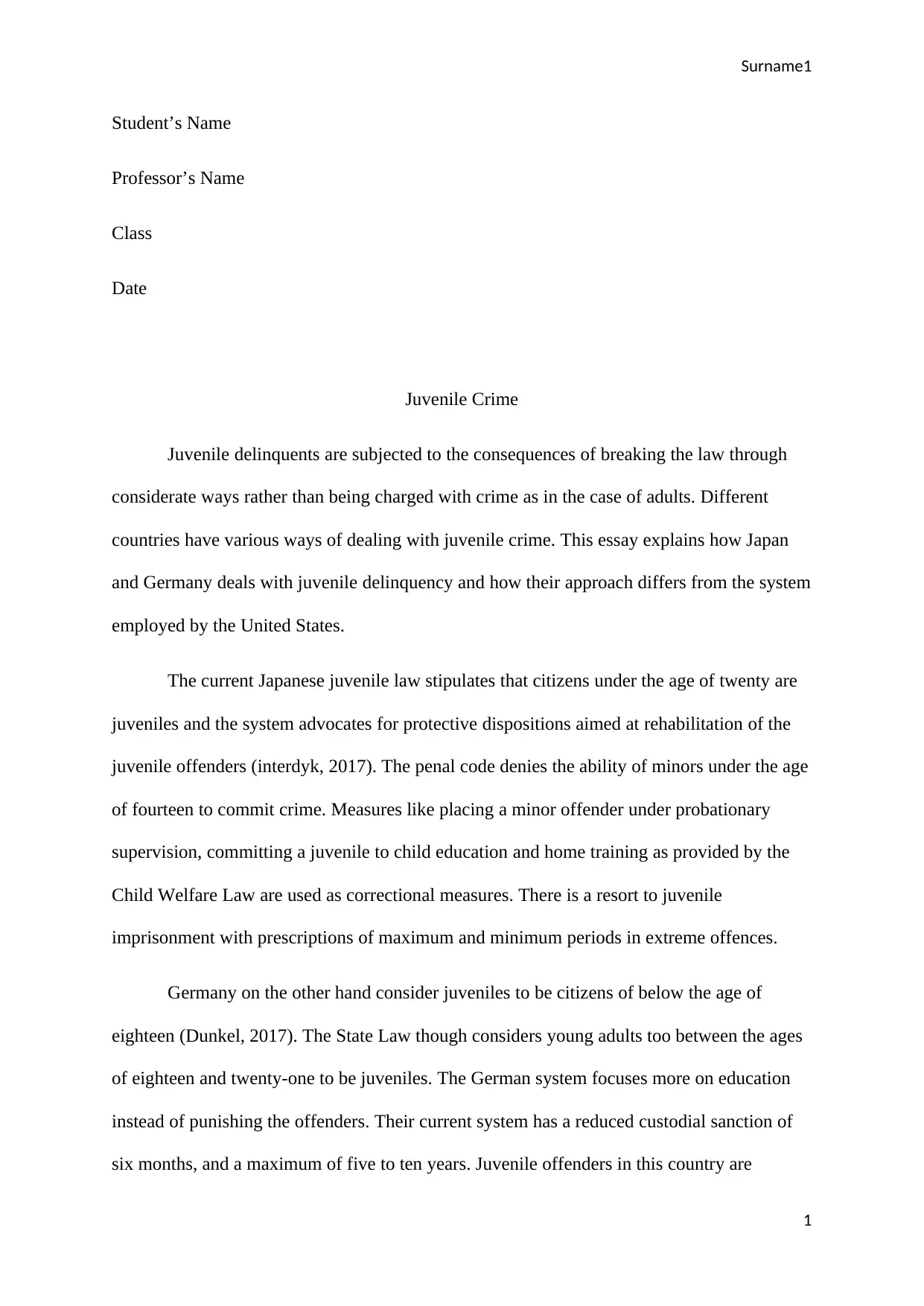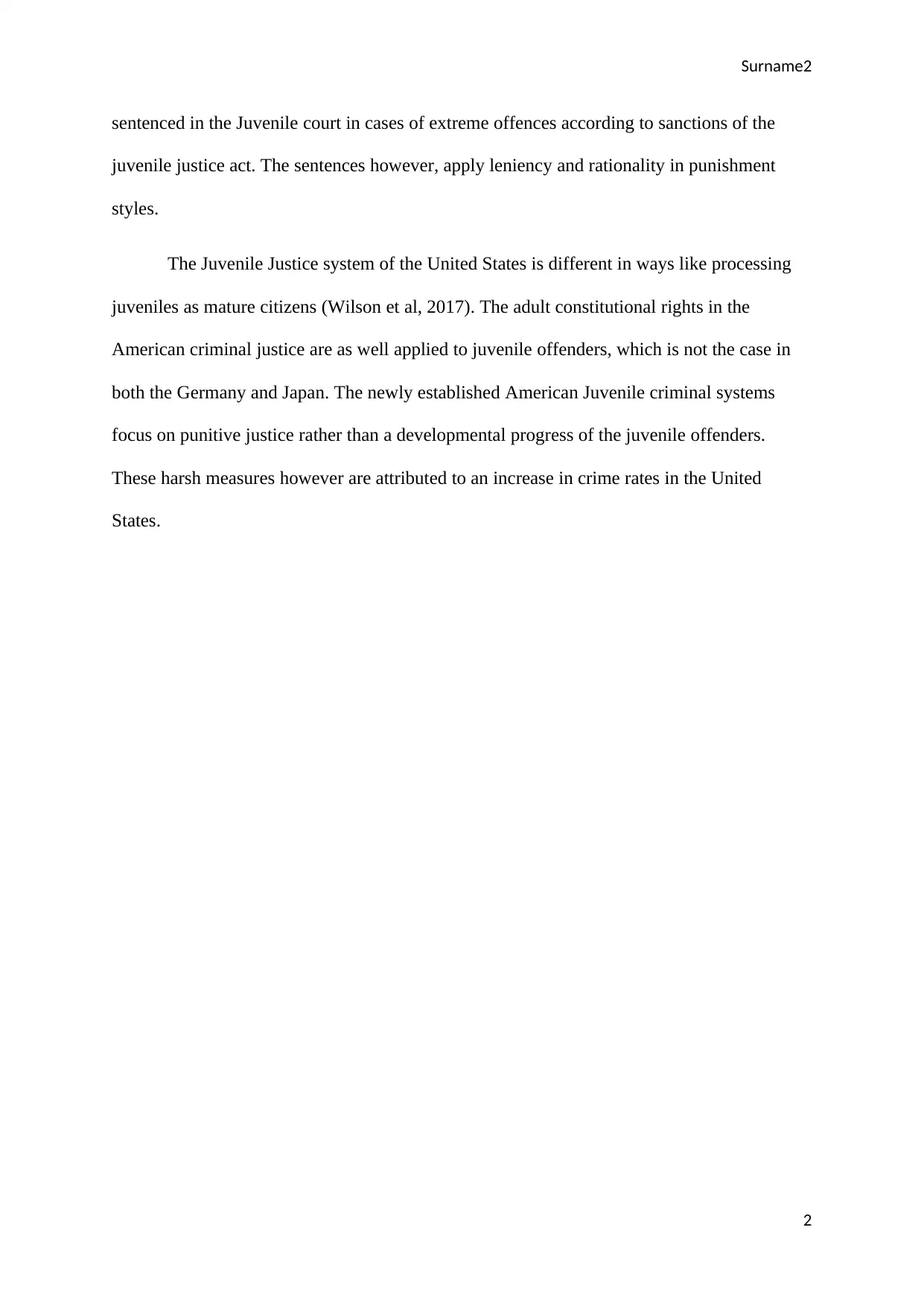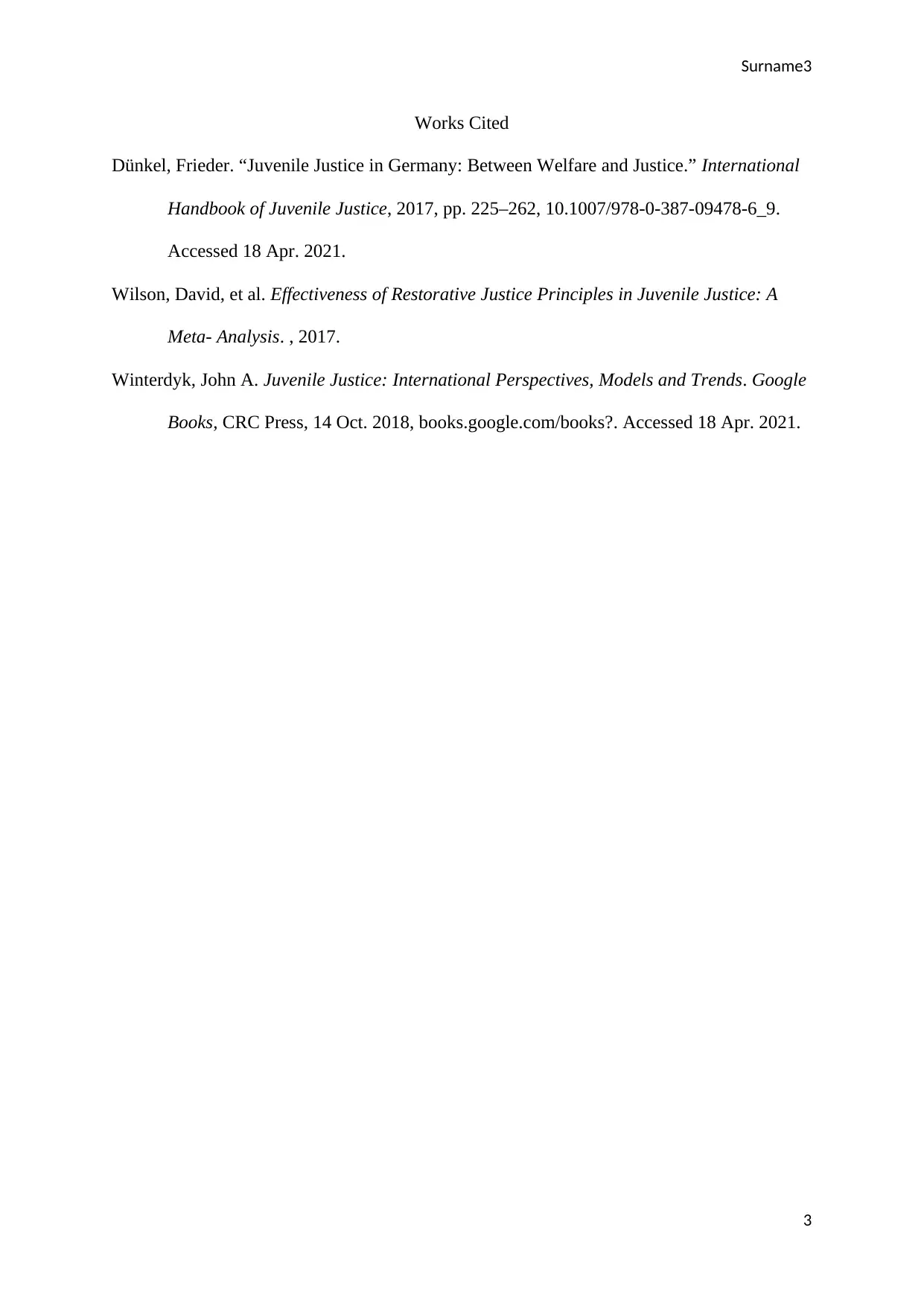Comparative Analysis: Juvenile Justice Systems in Different Nations
VerifiedAdded on 2021/05/25
|3
|478
|802
Essay
AI Summary
This essay provides a comparative analysis of juvenile justice systems in Japan, Germany, and the United States. It highlights the differences in how these countries address juvenile delinquency, including the legal frameworks, sentencing guidelines, and the overall approach to juvenile offenders. The essay explains that Japan's system focuses on rehabilitation, while Germany prioritizes education and a more lenient approach. In contrast, the United States' system often mirrors adult criminal justice, applying constitutional rights to juveniles, which is not the case in the other two countries. The essay points out that the U.S. system often leans towards punitive measures, potentially contributing to higher crime rates, contrasting with the rehabilitative and educational approaches of Japan and Germany. The analysis includes references to the different legal codes and practices in each country and the key differences in their approaches to juvenile crime.
1 out of 3










![[object Object]](/_next/static/media/star-bottom.7253800d.svg)